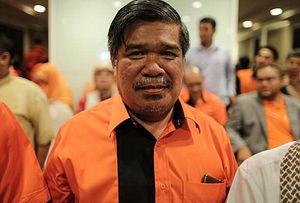Earlier this month, Malaysia’s defense minister suggested that the country could, in some cases, move to a barter system to procure military equipment. Although such an approach is by no means novel for the Southeast Asian state, it has nonetheless put the focus on the future of Malaysia’s defense policy under the new Pakatan Harapan (PH) government which took power following a shock election outcome last May.
The idea of countertrade – a catchall term for an exchange of goods through means other than currency purchase – is not new for Malaysia. Indeed, not unlike some other developing countries, it has been seen in the past as one among several options as the country seeks to balance domestic and foreign policy considerations in defense policy, including those such as offsets and technology transfer.
But the focus on this option has begun to increase further under the new Pakatan Harapan (PH) government, amid a focus on some broader developments in defense policy such as the expected issuance of the country’s first white paper later this year. This is due to a range of factors, including growing pressures on Malaysia’s defense budget, the greater urgency with which the country is pushing the sale of some key national commodities, and the government’s willingness to consider a wider range of defense partners that may be more flexible regarding defense arrangements.
Earlier this month, this issue within Malaysia’s defense policy was again in the spotlight with suggestions that Malaysia could in some cases move to a barter system to procure defense equipment. Speaking at a press conference on April 19, ahead of a trip to Russia, Malaysian Defense Minister Mohamad Sabu said that Malaysia has “been working towards a barter system” of utilizing national commodities such as palm oil instead of allocated state funds to pay for defense equipment.
The minister’s suggestions are not entirely surprising given the aforementioned structural trends facing Malaysia and the practical realities the current government is facing in balancing a stretched budget and an urgent need to boost the country’s military capabilities. The extent of the constraints was emphasized last year when the PH government had to cut defense spending by around 10 percent in its first budget (even though that spending has been reinforced by additional funds thereafter, and officials have suggested that this allocation may increase in subsequent years). His statements were also just the latest in a string of such comments from Malaysian officials in the wake of developments with respect to the European Union’s stance on restrictions placed on Malaysian palm oil, a key commodity for the Southeast Asian state.
Yet absent more specifics, at this preliminary stage, it is difficult to assess how exactly this would play out and what this would mean in practice. For one, in terms of cost-benefit analysis, while countertrade deals may have their benefits, those benefits would need to be weighed against potential costs and risks, including that of buying cheaper, lower quality equipment that will do little to actually address the gaps it has and could in fact end up costing more in the longer run when one adds other costs such as service and maintenance. For another, options such as countertrade also raise broader issues for Malaysia’s defense policy, including moving further towards a broader array of defense partners can have effects on aspects such as interoperability.
For now, little has been publicly disclosed about the nature of specific countertrade deals, with the minister only indicating some degree of willingness by countries such as China, Russia, and Pakistan to engage in potential transactions, and media reports surfacing periodically about discussions of specific equipment including during his recent visit to Moscow. It also remains unclear how this will fit in with wider strategic developments in Malaysia’s defense policy, such as the upcoming release of the country’s defense white paper. But as the conversation evolves, this will continue to be one to watch to assess not just individual deals, but what they mean for Malaysia’s defense policy more generally looking further ahead.

































